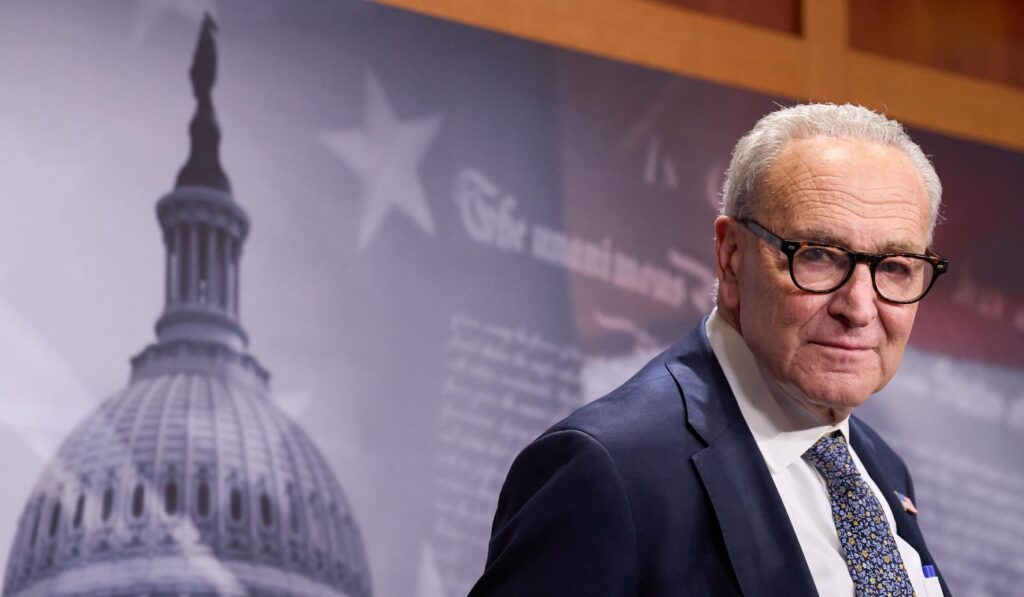Indivisible is planning its biggest primary push yet after Senate Democrats agreed to end the shutdown, and Republicans see this as proof that Democrats chose short-term stability over long-term responsibility.
Washington just witnessed another coalition shift that will reshape primaries and messaging for the next election cycle. Political operatives are already recalibrating strategies after leaders in the Senate accepted a deal to end the government shutdown without renewing certain provisions, and grassroots groups responded fast. That reaction has clear implications for both party discipline and voter turnout in battleground states.
On the left, activism groups moved quickly. The liberal campaign organization Indivisible announced Tuesday it plans to launch its largest primary initiative ever because Senate Democrats capitulated to end the government shutdown without re-up. From a Republican perspective, this is a predictable consequence: when a caucus looks weak or divided, outside groups rush in to punish perceived softness.
Republican strategists are framing the moment as an opportunity to highlight contrast and accountability. They argue voters should know who backed compromises that reset priorities and who stuck to principles about spending, oversight, and legislative bargaining. Messaging will stress that concessions made under pressure rarely fix the underlying fiscal and policy problems that cause shutdowns in the first place.
Inside the GOP, officials are salivating at the chance to chip away at Democratic unity by spotlighting primary threats and policy concessions. The belief is that when opponents spend energy fighting inside their own tent, it creates openings for direct appeals to independents and conservative voters disillusioned with the status quo. Campaigns will present a simple choice: steady leadership versus activist-driven volatility.
On the ground, this primary initiative from Indivisible is meant to recalibrate the nominee field toward candidates who will resist similar deals in the future. The group’s plan signals a broader shift in Democratic grassroots tactics, moving from persuasion to direct intervention. Republicans see a double benefit: not only can they exploit intra-party discord, but they can also position themselves as the stable alternative in a time of legislative drama.
Voters who watched the shutdown debate will want answers about priorities and tradeoffs, and Republicans intend to force those answers into the spotlight. Campaigns will ask about funding priorities, border security, and fiscal responsibility while painting Democratic concessions as capitulation under pressure. That framing aims to connect abstract Senate maneuvering to everyday pocketbook concerns for ordinary Americans.
The tactical picture is clear: primary challenges can change the calculus for incumbents who fear losing a base-driven nomination more than a general election. That dynamic can push parties toward the extremes or, alternatively, toward candidates who can bridge divides without sacrificing the core priorities of their base. Republicans believe this moment will reinforce the importance of candidates who can govern without bowing to activist pressure.
Long-term, both parties will learn lessons from how the shutdown ended and how outside groups responded. For Republicans, the strategy will emphasize consistent messaging, voter activation, and holding Democrats accountable for deals that sidestep tougher reforms. If Indivisible follows through on its promise to back primary challengers, campaigns and committees will respond with targeted outreach designed to protect incumbents and win over undecided voters.
What happens next depends on how voters interpret the recent showdown and the activists who jump into the fray. Republicans will push the narrative that elected officials must balance compromise with clear principles, and that outside groups should not dictate legislative outcomes. With high-stakes primaries on the horizon, the pressure on incumbents from both sides of the aisle is only going to increase.



